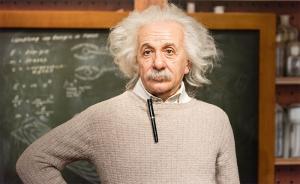At the age of three, Albert Einstein did not speak, his parents decided to implement a special educational method, helping him to calculate and do science at the age of 12.
For years, researchers have been trying to figure out whether parents can and how to raise their children to be geniuses. In 1999, a study in the Lancet Scientific Journal analyzed 14 photographs of Einstein’s brain, showing that an area of the brain was blank, allowing the parietal lobe, responsible for language processing, to take up more space. . The scientists point out that this part is larger than most people’s parietal lobes.
Journalist Tatsha Robertson and Harvard economist Ronald Ferguson researched and discovered how parents of successful children raise their children, contributing to the process of their children becoming geniuses.
Over the course of 15 years, Robertson and Ferguson surveyed 200 successful people and their parents. The two scientists also studied the childhoods of famous personalities from Anne, Susan, and Janet Wojcicki, who have been dubbed the “Sisters of Silicon Valley” to Albert Einstein.
In the study, a clear pattern was shown that parents of successful people apply similar education methods, even though the families are different in terms of living situation, nationality, and economic potential.
Robertson and Ferguson call that model the “Formula,” which includes eight roles parents play in their children’s upbringing: Classmate, engineer, restorer, sharer, philosopher, model, and teacher. negotiator and facilitator.
“Eintstein’s parents, Lauline and Hermann, did well in all eight roles, but they did particularly well as negotiators and sharers, ” Robertson said.

Albert Einstein. (Image: Shutterstock).
Parents with this role encourage their child’s independence, but also intervene when necessary. Once negotiated and agreed upon between parents and children, the children will not be able to give up. Einstein’s mother, Pauline, was strict with this rule.
In 1884, 5-year-old Einstein had a rage at his piano teacher. Instead of scolding and refusing to let Einstein take piano lessons, Mrs. Pauline decided to hire another teacher.
Pauline soon discovered boys often struggled to concentrate. As an accomplished pianist, she understands that learning an instrument is beneficial in developing discipline and helping children to focus more. The new piano teacher helped Einstein improve this ability.
Einstein himself admitted, many of the foundations of great theories were discovered by him while playing the violin. We might not have the theory of relativity if Pauline hadn’t persevered in getting Einstein to learn the piano.
Parents who take the role of sharers introduce new ideas and skills to their children, places they can go, and who they can become. They encourage their children to persevere in finding solutions to problems in a disciplined and independent manner.
Although Einstein hated school, his parents at the time understood the reason because he didn’t get much education at school, not because he hated studying. Their solution was to create a learning environment that stimulated Einstein’s imagination at home. They provided Einstein with books and toys according to his interests to avoid boredom.
As Einstein grew, his curiosity was fueled when his parents allowed him to talk and dine with his scientist friends. They would ask Einstein questions and he would be rewarded for each correct answer.
Tutoring Einstein at the age of 12 or 13 shared, he had to work very hard to keep up with the skill development of the boy Einstein at that time.
A child’s genius is not always born entirely. Parents’ upbringing plays an important role in forming good habits and training qualities for children.
Einstein’s parents raised him to embrace humility, accept failure, and push to discover new things. “I’m not too smart. I’m lucky because my parents raised me well, giving me more time to solve problems,” Einstein once said.

